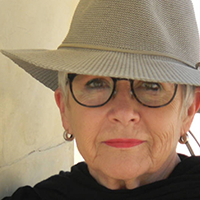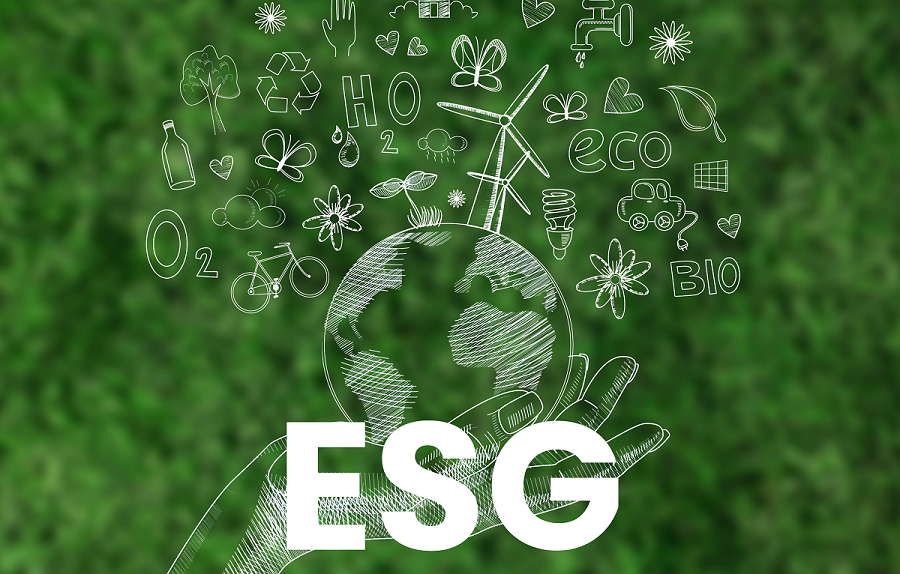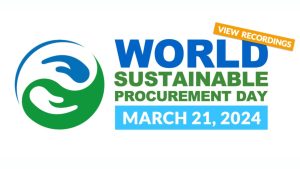 Stop and think for a moment about the incredible power you have as a Procurement and Supply Chain Manager, says green supply chain guru, Lorraine Jenks. Speaking to SmartProcurementNews, she asks you to consider the real ramifications of your capacity to be a sustainable supply chain influencer: You have the power to refuse to source or order anything that doesn’t meet your carefully considered standards. You have the authority and the ability to encourage all stakeholders to make better choices.
Stop and think for a moment about the incredible power you have as a Procurement and Supply Chain Manager, says green supply chain guru, Lorraine Jenks. Speaking to SmartProcurementNews, she asks you to consider the real ramifications of your capacity to be a sustainable supply chain influencer: You have the power to refuse to source or order anything that doesn’t meet your carefully considered standards. You have the authority and the ability to encourage all stakeholders to make better choices.
After 50 years as an activist, 35 as a professional speaker and guide for Sustainable, Circular Procurement, Supply Chain and ESG, I am amazed at the phenomenal increase in concern about climate change, and, to a lesser extent, concern for the destruction of ecosystems.
Every industry, throughout its value chain buys stuff, uses it, then throws it away. As you go through your day today, think how everything you will be using to sleep on, eat, wear, drive, or build, has an impact on the environment, on the people who made it and where it ends up.
The foundation of sustainable supply chain decisions is the United Nations’ Sustainable Development Goals (SDGs). These outline an agenda for creating a safer, healthier, more sustainable future. The goals include reducing the impact of climate change and greenhouse gas emissions, protecting ecosystems, and promoting social justice.
One of the most practical (and interesting) ways to achieve these goals is to consider and measure the impact of a supply chain on all stakeholders, from the extraction of raw materials to the transport, manufacture, packaging, distribution and disposal of products. This includes evaluating the environmental and social impact of the materials and processes used in the supply chain, as well as the working conditions of employees.
People are tired of the hype, jargon and geek speak – they’re feeling overwhelmed. However, in addition to “sustainability”, latterly adopted terms like “circularity” and “regeneration” are welcomed. Having had the privilege of growing up on a farm, it dawned on me that farmers instinctively practise all these standards. They just didn’t have a name!
The circular economy is an alternative to the traditional linear economy, in which resources are extracted, used, and then discarded as waste. In a circular economy, resources are kept in use for as long as possible, and waste is minimized. We can achieve this through recycling, reusing, and repairing products, as well as designing products at the very outset with end-of-life considerations in mind.
Regeneration is becoming a preferred description. Sustainability is generally understood as a concept that focuses on “doing less bad” to sustain the world for future generations. Things like producing less emissions and waste, or using less energy: “Do no harm”. Meanwhile, regeneration prioritises “doing more good over doing less bad: In other words: “Leave things better than you found them.”
Finally, ESG is an acronym that’s popping up more than ever before. ESG has been around for ages but is heavily trending now because the E is finally getting proper attention, and because the financial people have realised there is money in sustainability! The E stands for Environment, the S for Social and the G for Governance. You could measure and report on these yourselves by using readily available templates and software but now professional auditors are offering to do it for you, for a fee.
The bad news is that to achieve NetZero carbon emissions, irresponsible companies are greenwashing with impractical, even impossible, offsets and sequestrations. The good news is that it is forcing top executives (who, traditionally, have been too busy running their companies and trying to make a profit) to worry about sustainability. This is happening because customers are demanding better practices and investors are demanding ESG reports to help them make responsible decisions.
This is your chance to become a change agent, an industry expert. We run fun, practical workshops on all these principles. Come and upskill your qualifications. Use your influence to motivate decision-makers throughout your company’s value chain. Help them understand why and how to make better choices. It could be your legacy.
By Lorraine Jenks, Founder CEO of Hotelstuff and Greenstuff , Global TEDx Speaker, Climate Reality Leader, Sustainability, Circularity & ESG Guide and Green Supply Chain Specialist https://www.lorrainejenks.com/



























